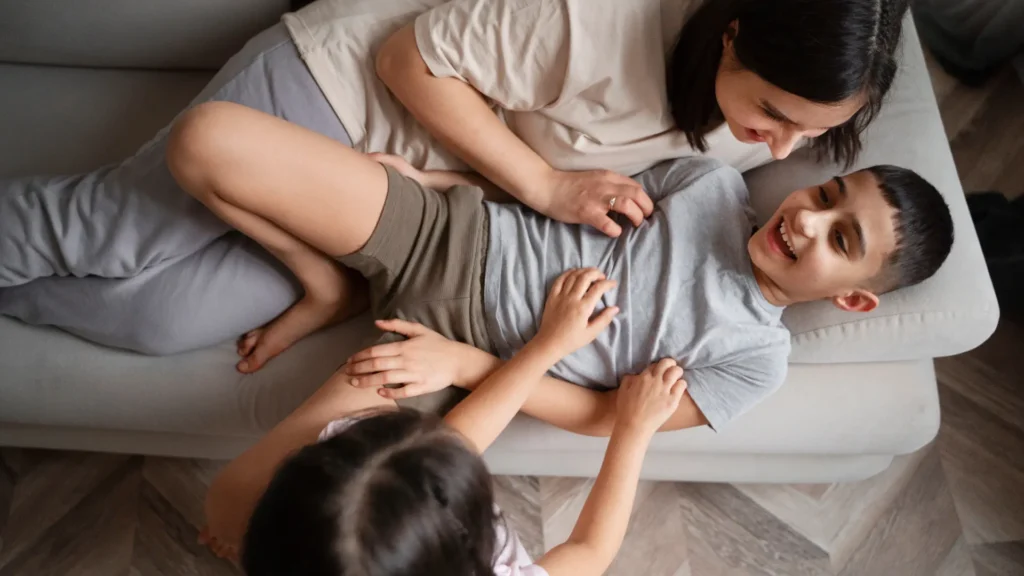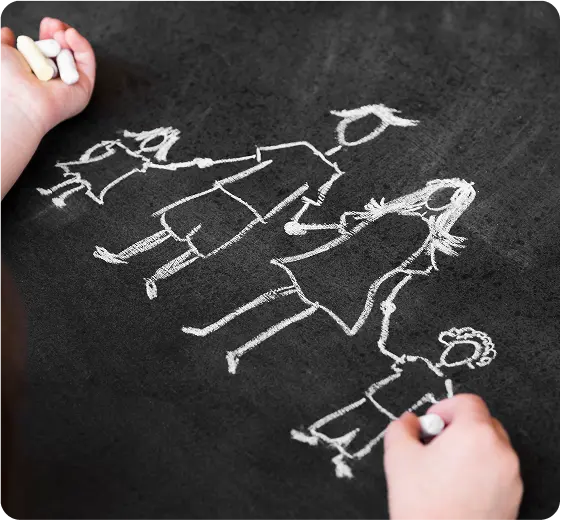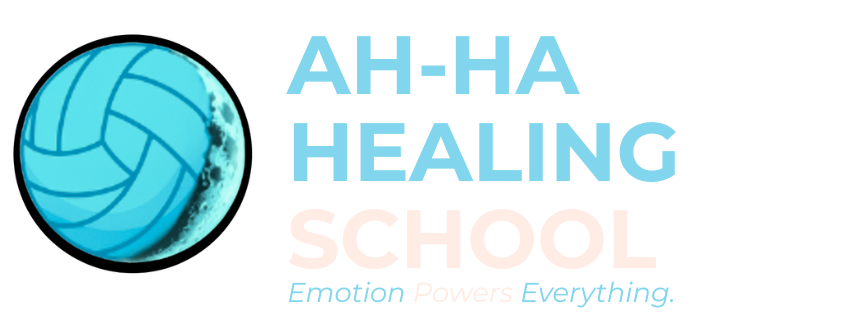
Case Study:
A family who completed AH-HA’s Emotional Fitness Program reported fewer conflicts, more open communication, and a measurable increase in their children’s confidence and empathy scores.
Core Emotional Fitness Skills for Parents and Children
1. Emotional Literacy and Self-Awareness
Emotionally fit families name and discuss feelings openly. Parents model self-awareness, helping children identify and express their emotions in healthy ways.
2. Emotional Regulation and Growth
Life brings challenges. Emotionally fit parents teach kids to manage stress, recover from setbacks, and develop coping strategies—building skills for a lifetime.
3. Empathy and Healthy Communication
Empathy is the foundation of strong families. Our programs teach active listening, perspective-taking, and compassionate communication, reducing conflict and building trust.
4. Purpose, Values, and Meaning
Emotionally fit families connect daily routines to shared values and long-term purpose. This sense of meaning strengthens bonds and guides decision-making.
How to Build Emotional Fitness at Home
Model Emotional Fitness
Children learn by example. Show self-awareness, regulate your own emotions, and apologize when you make mistakes. Authenticity builds trust and growth.
Create Safe Spaces for Expression
Encourage open dialogue about feelings. Use daily check-ins, family meetings, or creative activities to make emotional expression a regular part of home life.
Practice Together
Integrate short, daily practices like deep breathing, gratitude journaling, or mindful movement. Consistency is key—emotional fitness grows with practice.
Seek Support When Needed
No family is perfect. Reach out for coaching, therapy, or community support when challenges arise. AH-HA Healing offers tailored programs for families at every stage.
Common Barriers and How to Overcome Them
Generational Patterns
Many parents repeat the emotional habits they learned growing up. Break the cycle by learning new skills and seeking support.
Time Pressures
Busy families can start with micro-practices—just a few minutes a day can make a difference. Focus on quality, not quantity.
Fear of Vulnerability
It’s normal to feel uncomfortable discussing emotions. Start small, celebrate progress, and remember: vulnerability is the birthplace of connection.
The Future of Parenting: Raising Emotionally Fit Kids
As the world changes, the greatest gift you can give your child is emotional fitness. It’s the foundation for adaptability and lifelong well-being. Families who invest in emotional fitness now will raise the leaders, innovators, and compassionate citizens of tomorrow.
Testimonial:
“AH-HA Healing’s Emotional Fitness Program transformed our family. We communicate better, support each other, and our kids are more confident than ever.” — Lisa, Parent
Getting Started: Bring Emotional Fitness Home
Ready to transform your family’s well-being?
– Book a discovery call with AH-HA Healing
– Explore our Emotional Fitness Programs for parents and kids
– Join the movement redefining what it means to raise a thriving family
Your healing matters. Your family’s future starts with emotional fitness.
Frequently Asked Questions
Q: How is emotional fitness different from traditional parenting advice?
A: Emotional fitness focuses on emotional roots, not just behaviors. It’s a proactive, science-backed system for building growth, empathy, and well-being in the whole family.
Q: How long does it take to see results?
A: Our core program runs for 6 months, with an additional 6 months of maintenance. Many families notice positive changes within weeks.
Q: Is the program suitable for all ages?
A: Yes. We tailor our approach to your family’s unique needs and stages.
Conclusion
Emotional fitness is the missing link in parenting—a game-changing approach that empowers families to break cycles, build skills, and thrive together. At AH-HA Healing, we’re leading the way with science, compassion, and real-world results. Join us in raising the next generation of emotionally fit leaders and changemakers.







Emotional fitness is the wellness revolution the world has been waiting for—a vital shift beyond the limits of traditional mental health. It’s time to separate emotional fitness from outdated systems of therapeutic funding, education, and hopelessness.